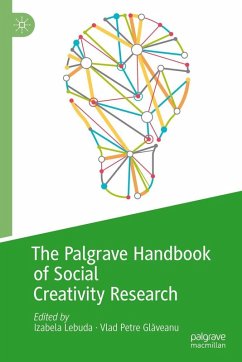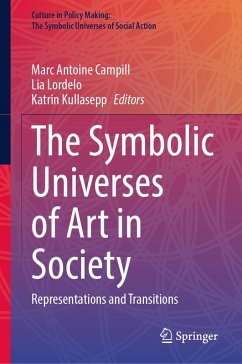
The Palgrave Handbook of Humour Research (eBook, PDF)

PAYBACK Punkte
60 °P sammeln!
This Handbook provides new perspectives on humour from transdisciplinary perspectives. It focuses on humour as a resource from different socio-cultural and psychological viewpoints and brings together authors from different cultures, social contexts and countries. The book will enable researchers and practitioners alike to unlock new research findings which give new directions for contemporary and future humour research. By employing transdisciplinary and transcultural perspectives, the volume further discusses humour in regard to different cultural and political contexts, humour over the life...
This Handbook provides new perspectives on humour from transdisciplinary perspectives. It focuses on humour as a resource from different socio-cultural and psychological viewpoints and brings together authors from different cultures, social contexts and countries. The book will enable researchers and practitioners alike to unlock new research findings which give new directions for contemporary and future humour research. By employing transdisciplinary and transcultural perspectives, the volume further discusses humour in regard to different cultural and political contexts, humour over the lifespan, in therapy and counselling, in pedagogical settings, in medicine and the workspace. The contributions also highlight the connections between humour and the COVID-19 pandemic and promise new inspiring insights. Researchers, practitioners and students in the fields of industrial and organisational psychology, positive psychology, organisational studies, future studies, health and occupational science and therapy, emotion sciences, management, leadership and human resource management will find the contributions highly topical, insightful and applicable to practice.
Dieser Download kann aus rechtlichen Gründen nur mit Rechnungsadresse in A, B, BG, CY, CZ, D, DK, EW, E, FIN, F, GR, HR, H, IRL, I, LT, L, LR, M, NL, PL, P, R, S, SLO, SK ausgeliefert werden.












